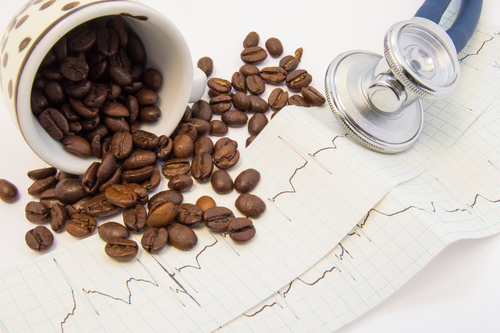Three cups a day keeps AFib away, researchers conclude
M3 Global Newsdesk May 18, 2018
While so far, the assumption has been that caffeine contributes to arrhythmia but a new study now reports that up to 3 cups of coffee per day may actually protect against arrhythmias.

A jolt of java may jumpstart your morning, but it won’t aggravate arrhythmias, according to a new study. Because caffeine stimulates the central nervous system and heart rate, many people assume that it may contribute to arrhythmia. This assumption extends to the medical community, as more than 75% of US physicians recommend cutting back or cutting off caffeine for patients with palpitations or documented arrhythmias.
But research has shown that up to 3 cups of coffee (about 300 mg of caffeine) per day appear to be safe—and may even protect against heart rhythm disorders, according to a recent review published in JACC: Clinical Electrophysiology.
“There is a public perception, often based on anecdotal experience, that caffeine is a common acute trigger for heart rhythm problems,” said the study’s lead author Peter Kistler, MBBS, PhD, director of electrophysiology, Alfred Hospital and Baker Heart and Diabetes Institute, Melbourne, Australia. “Our extensive review of the medical literature suggests this is not the case.”
Dr. Kistler and colleagues performed a retrospective review to examine the effects of caffeine on both atrial and ventricular arrhythmias, including atrial fibrillation (AFib), the most common heart rhythm disorder.
“To date, clinical studies have failed to show deleterious effects of caffeine on atrial and ventricular electrophysiologic properties,” they wrote. “Population-based studies have consistently demonstrated a reduction in atrial fibrillation with increasing levels of caffeine ingestion.”
Reduction in AFib risk
A single cup of coffee contains about 95 mg of caffeine. When ingested in such amounts, caffeine inhibits the effects of adenosine, a neurotransmitter that is believed to trigger AFib, Dr. Kistler and coauthors noted. They pointed to one meta-analysis of 228,465 participants showing that AFib incidence decreased by 6% for every 300 mg/day increment in regular caffeine intake. A further meta-analysis of 115,993 patients showed a 13% reduction in incident AFib risk.
The researchers also noted that caffeine doesn’t appear to increase the likelihood of ventricular arrhythmia. Caffeine doses up to 500 mg daily (equal to about six cups of coffee) didn’t increase the severity or frequency of ventricular arrhythmias. A randomized study of 103 post-heart attack patients who received an average of 353 mg/day showed improved heart rate variability, increased parasympathetic activity, and no significant arrhythmias compared with controls.
“Moreover, large epidemiological studies suggest that regular caffeine drinkers have lower cardiovascular and all-cause mortality, with a potentially attenuated risk of coronary heart disease, heart failure, and stroke,” the researchers wrote.
Only two studies demonstrated an association between coffee intake, in which patients ingested “very high” levels of caffeine (more than 9 or 10 cups a day), and ventricular arrhythmias.
“Caffeinated beverages such as coffee and tea may have long-term antiarrhythmic properties mediated by antioxidant effects and antagonism of adenosine,” said Dr. Kistler, who is also professor of medicine, University of Melbourne. “In numerous population-based studies, patients who regularly consume coffee and tea at moderate levels have a lower lifetime risk of developing heart rhythm problems and possibly improved survival.”
Advise caution in some caffeine consumers
Energy drinks, which contain concentrated amounts of caffeine (from 160 mg to 500 mg per container), are a different story. In one study, three-quarters of patients who consumed 2 or more energy drinks per day reported palpitations within 24 hours, compared with only 12% of occasional consumers.
“The International Society of Sports Nutrition recommends that patients with preexisting cardiovascular conditions who are taking medications that may be affected by caffeine and other stimulants refrain from use of energy drinks, and they warn that more than 1 energy drink/day, even in healthy individuals, may be harmful,” Dr. Kistler and coauthors wrote.
But overall, both large population studies and randomized control trials suggest caffeine intake of up to 300 mg/day may be safe and even protective for arrhythmic patients, the authors concluded. However, any patient who shows a clear temporal association between caffeine intake and arrhythmia episodes should be advised to avoid coffee.
This research was supported in part by the Victorian Government’s Operational Infrastructure Funding.
This story is contributed by John Murphy and is a part of our Global Content Initiative, where we feature selected stories from our Global network which we believe would be most useful and informative to our doctor members.
-
Exclusive Write-ups & Webinars by KOLs
-
Daily Quiz by specialty
-
Paid Market Research Surveys
-
Case discussions, News & Journals' summaries